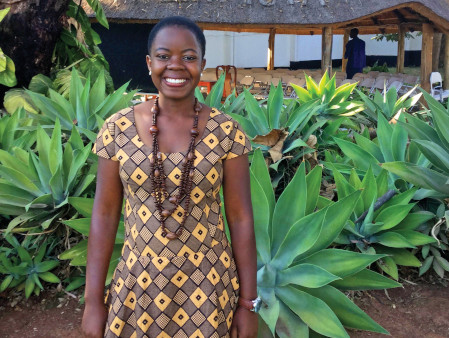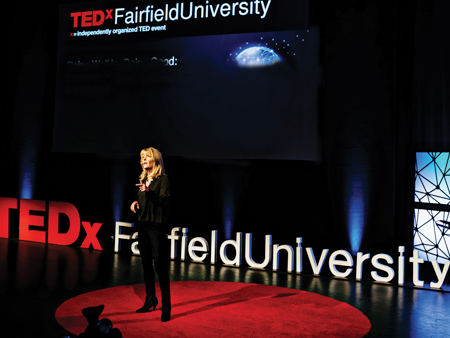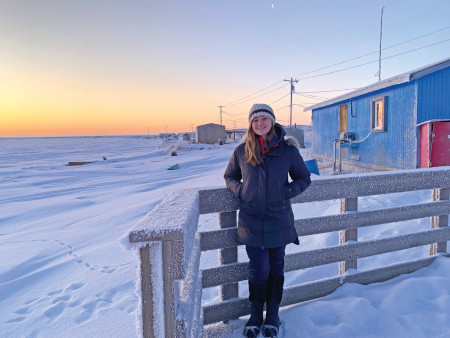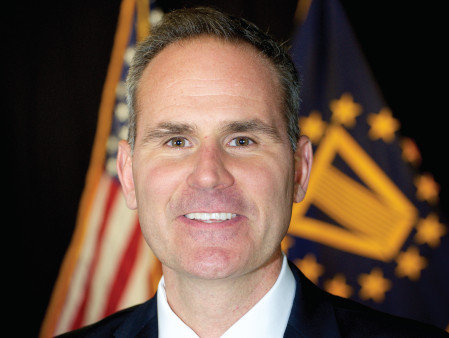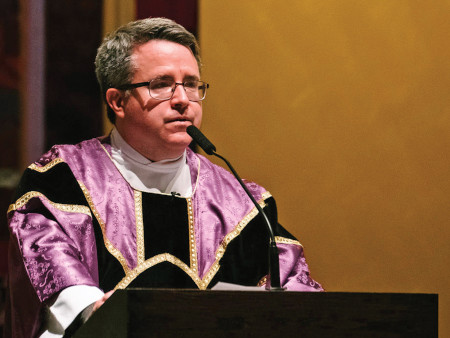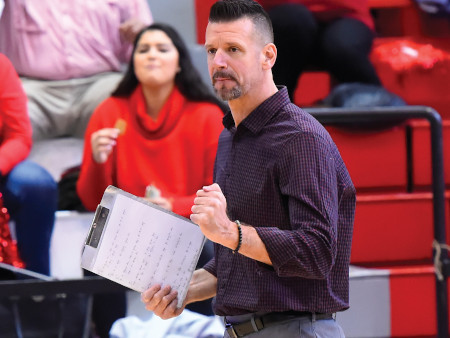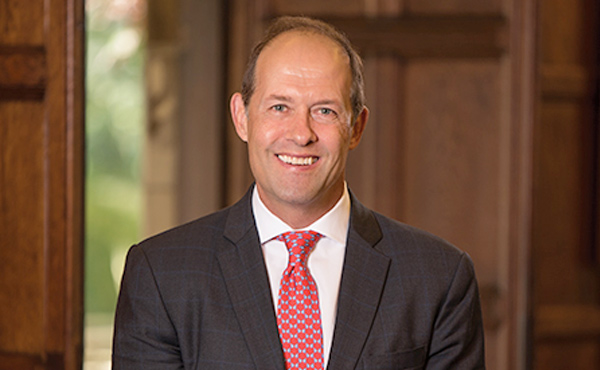As a child, Patience Mhlanga ’14 fled her native Zimbabwe due to political persecution, first to a refugee camp in Zambia then to America with the support of the Jesuit Refugee Service.
Be reminded that you may not ‘save anyone,’ but your presence is valuable. During my Peace Corps service, some days felt like my community and I were simply working together to ignite a spark of hope for everyone to flourish.
— Patience Mhlanga ’14
After graduating from Fairfield, mindful of the generosity she had been shown by the Jesuits, she joined the Peace Corps to return the same helping hand she once received.
“I am a practicing Catholic, and I have always believed that being of good service to others is a reflection of our love for thyself, others, and God,” she said. “I felt a sense of duty and calling to apply for the Peace Corps, because it demanded more than being just kind, but also my gifts and skills in solving various challenges affecting the developing world.” Ten years after leaving the refugee camp in 2007, Mhlanga returned to Zambia to work as a health volunteer focusing on nutrition, HIV/AIDS, maternal and child health, and sanitation.
Her responsibilities included village-to-village outreach regarding HIV education, hosting cooking demonstrations using local produce, teaching mothers about nutrition, and helping to build a new maternity ward and waiting shelter.
“Peace Corps is more than volunteering. It is a job that demands our gift of time and a duty that should be taken seriously,” noted Mhlanga. “Be reminded that you may not ‘save anyone,’ but your presence is valuable. During my Peace Corps service, some days felt like my community and I were simply working together to ignite a spark of hope for everyone to flourish.”
Since the Peace Corps was first established in 1961, more than 230,000 U.S. citizens have served in 141 countries world-wide. With almost 3,500 of those volunteers from Connecticut — and 156 from Fairfield University — in 2018, Fairfield responded to increased student interest in international service by becoming the first Jesuit university to offer a Peace Corps Prep Program. A joint collaboration between the International Studies program and the Center for Social Impact (formerly the Center for Faith & Public Life), the program combines hands-on experience with specialized coursework to build necessary competencies. Courses focus on six Peace Corps sectors: education, health, environment, agriculture, youth in development, and community economic development.
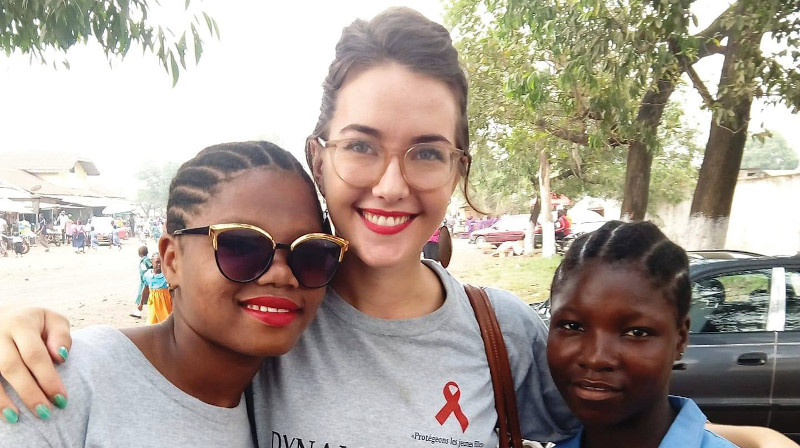
Zambian schoolgirls learn how to make reusable feminine products.
“The first of its kind among our Jesuit peer institutions, this dynamic new program allows us to address students’ interest in pursuing international careers by honing their intercultural skills and building their professional portfolios,” said Anita Deeg-Carlin, international studies program associate director and co-director of the Peace Corps Prep Program. “With a Peace Corps Prep certificate, graduates will have a head start when applying to international service opportunities, as well as a diverse community of peers who share their global outlook.”
Graduates of Fairfield’s Peace Corps Prep program will follow in the footsteps of Mhlanga and other recent graduates who have volunteered for the agency. Nursing major Julia Brown ’17 felt the call to join the Peace Corps after being taught at the Marion Peckham Egan School of Nursing & Health Studies that the holistic treatment of patients is not just something that happened in a hospital room. When she arrived in Njombé, Cameroon in 2017, Brown was struck by how different the culture was — she described being in awe of how people gracefully carried baskets, water jugs, and bags on their heads. Starting each day with a 40-minute walk to the nearby hospital, Brown dedicated herself to treating HIV patients as a community health extension agent, prescribing and dispensing medication, and reviewing test results. She also worked on a care team to launch a mobile clinic to bring affordable health interventions to the community and created HIV support groups, among other community initiatives.
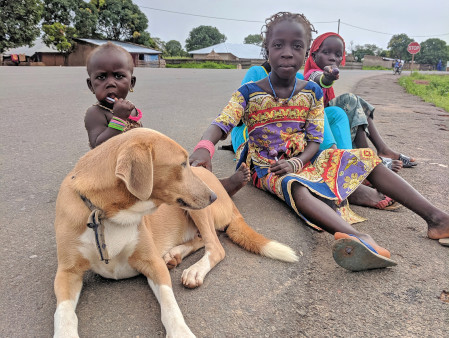
Local children play with 2017 alumna Bridget Mulkerin’s dog, Saï Saï
“I was impressed by the vast projects and funding in place for HIV prevention work across the whole country,” she said. “All of these things reinforce the idea that Peace Corps volunteers aren’t serving to ‘save’ anyone or anything, and we don’t know ‘better’ than Cameroonians. We simply have a different background and training, and offer a different perspective on public health initiatives.” Brown began her third Peace Corps term in January and is now stationed in Ebolowa, Cameroon.
A few thousand miles north of Cameroon, Bridget Mulkerin ’17 is on a journey of her own, working as an agroforestry volunteer in Senegal. She lives with a host family and her dog Saï Saï in the small village of Sitaba, located in the Sédhiou region on the Casamance River. The area is abundant in a variety of trees including acacia, baobab, and African mahogany. Mulkerin works with local farmers to improve the health of their tree and fruit production. Part of her role as an agroforestry volunteer involves working with an advanced farmer to build a Master Farm — a hectare plot of land used to teach local farmers improved agricultural and agroforestry technologies, which in turn improves food security. Training sessions cover tree pruning, beekeeping, composting, crop spacing, making organic fertilizer, creating tree nurseries, and live fencing. Additionally, Mulkerin and fellow volunteers started a scholarship program for 30 middle school-aged girls, teaching them skills such as composting, money saving, and making reusable menstrual pads. Mulkerin has witnessed the poverty and the harsh realities of life in Senegal, from weddings of child brides to funerals of children under the age of five — victims of malnourishment and lack of access to quality medical care. At the same time, she understands deeply that “people are people no matter where you go.”
“This means,” she said, “that middle schoolers still want dances, kids love playing in the dirt with their friends ... adults love drinking tea and talking with one another through the night. Everyone loves getting dressed up for holidays, praying, and celebrating together. My friends in Senegal do not allow the unacceptable poverty they experience to stop them from living. Still, their battle against it is hard fought, day after day.”
Fairfield University challenges students to be socially responsible men and women for others — and with others. These Peace Corps volunteers, and those who will follow, are exemplars of that mission. Mhlanga explained, “As Jesuit-educated students, we need to keep the flame burning. To not just be intelligent human beings, but to go beyond and dispense that intelligence into the community by serving others.”
